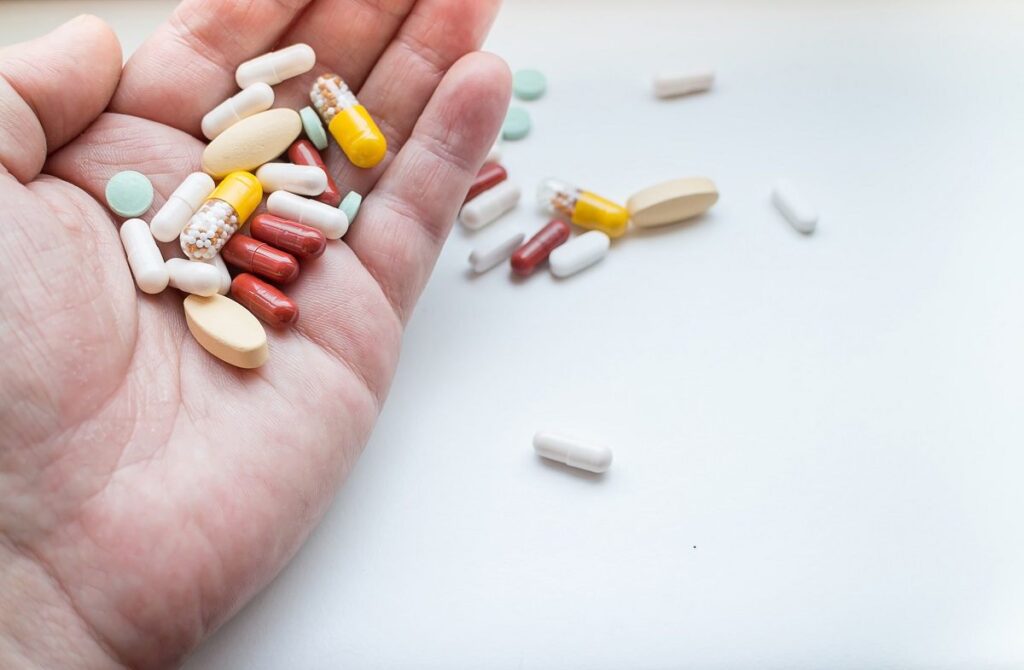Detoxing from drugs is a critical first step in the journey toward recovery. It involves clearing the body of toxic substances, managing withdrawal symptoms, and preparing the mind and body for long-term treatment. This process can be challenging, but with the right support and information, it is possible to achieve a drug-free life. In this guide, we will explore the steps for detox from drugs, various detox methods, and the importance of professional support during this crucial phase of recovery.
Contents
What Is The Detoxification Process?
 Detoxification, commonly referred to as detox, is the process by which the body removes toxic substances, particularly drugs or alcohol. This is the initial and crucial step in overcoming addiction. During detox, the body metabolizes and eliminates the drugs, allowing the individual to begin their recovery journey with a clean slate.
Detoxification, commonly referred to as detox, is the process by which the body removes toxic substances, particularly drugs or alcohol. This is the initial and crucial step in overcoming addiction. During detox, the body metabolizes and eliminates the drugs, allowing the individual to begin their recovery journey with a clean slate.
The detox process can vary significantly depending on the substance involved, the duration of use, and the individual’s overall health. Detox is not a treatment for addiction itself but a necessary step that prepares individuals for further therapeutic interventions. It is often followed by comprehensive treatment programs to address the underlying causes of addiction and promote long-term recovery.
What Are The Types Of Drug Detox Programs?
Detoxing from drugs can be a challenging and complex process, requiring various approaches to meet individual needs. Here are the primary types of drug detox programs:
Inpatient Detox Programs
Inpatient detox programs involve staying at a specialized facility where individuals receive 24-hour medical supervision and support. This type of detox is ideal for those with severe addictions or those who have experienced significant health issues related to drug use. Inpatient programs provide a structured environment, minimizing the risk of relapse and ensuring immediate medical intervention if complications arise.
Outpatient Detox Programs
Outpatient detox programs offer flexibility for individuals who cannot commit to an inpatient stay due to personal or professional obligations. Participants attend scheduled treatment sessions at a clinic or facility while continuing to live at home. This approach is suitable for those with less severe addictions or strong support systems at home. Outpatient detox typically includes regular medical check-ups, counseling, and medication management to help manage withdrawal symptoms.
Medically Assisted Detox
Medically assisted detox involves the use of medications to help manage withdrawal symptoms and reduce cravings. This type of detox is often used for individuals addicted to opioids, alcohol, or benzodiazepines, where withdrawal can be particularly severe and dangerous. Medications such as methadone, buprenorphine, or naltrexone are commonly used to ease the detox process.
Each type of detox program offers unique benefits and is tailored to fit the specific needs and circumstances of the individual. Choosing the right program is crucial for ensuring a successful detox and laying a strong foundation for ongoing recovery.
What Happens When You Detox?
 When you detox from drugs, your body goes through several key stages as it works to eliminate the toxic substances and begin the process of healing. Here’s an overview of what typically happens during detox:
When you detox from drugs, your body goes through several key stages as it works to eliminate the toxic substances and begin the process of healing. Here’s an overview of what typically happens during detox:
1. Withdrawal Symptoms
As the body starts to rid itself of the drug, you may experience withdrawal symptoms. Common withdrawal symptoms include anxiety, depression, irritability, fatigue, sweating, shaking, nausea, vomiting, and insomnia.
2. Physical and Psychological Effects
Detox affects both the body and mind. Physically, the body adjusts to the absence of the drug, leading to changes in appetite, sleep patterns, and energy levels. Psychological effects can include mood swings, cravings, and mental fog. The intensity of these effects typically peaks within the first few days and gradually diminishes over time.
3. Stabilization and Transition to Treatment
As withdrawal symptoms subside, the focus shifts to stabilization. This involves restoring physical and mental health to a baseline state. Nutrition, hydration, and rest are emphasized to help the body recover. Once stabilized, the individual is prepared for the next phase of addiction treatment.
Detox is a critical first step in the recovery process. And, helping to cleanse the body of drugs and prepare the individual for a comprehensive treatment plan aimed at achieving long-term sobriety.
How To Detox From Drugs?
Detoxing from drugs involves several methods and approaches that cater to different needs and circumstances.
6 best methods
Here are some strategies used to facilitate the detox from drugs:
Holistic Detox Programs
Holistic detox programs take a comprehensive approach to detoxification, addressing the body, mind, and spirit. These programs often incorporate alternative therapies such as acupuncture, yoga, meditation, and massage therapy to help manage withdrawal symptoms and promote overall well-being. Nutrition and exercise are also emphasized, as they play a crucial role in supporting the body’s detoxification processes and restoring health.
Social Detox
This method is often facilitated by trained professionals or within peer support groups. The focus is on providing emotional support, encouragement, and a safe space for individuals to go through withdrawal. Social detox can be effective for those with mild to moderate addictions who do not require intensive medical intervention. The supportive community aspect helps reduce feelings of isolation and promotes a sense of accountability.
Rapid Detox
Rapid detox is a method where the detoxification process is accelerated using anesthesia and medication to quickly eliminate the drugs from the body while the individual is unconscious. This approach is highly controversial due to its potential risks. While it aims to shorten the duration of detox, it requires a hospital setting and close medical supervision. Rapid detox is generally reserved for specific cases and is not widely recommended due to its associated dangers and high costs.
Tapering Off
Tapering off is a gradual reduction of drug dosage over time to minimize withdrawal symptoms. This method is particularly useful for substances that can cause severe withdrawal effects, such as benzodiazepines or opioids. Under medical supervision, the dosage is slowly decreased, allowing the body to adjust to lower levels of the substance without experiencing the shock of abrupt cessation.
Home Detox
Home detox involves detoxifying from drugs in the comfort of one’s own home, often with the guidance of a healthcare provider. This approach can be suitable for individuals with less severe addictions and strong support systems. It requires careful planning, including having a clear plan for managing withdrawal symptoms and access to emergency medical care if needed. Home detox also involves regular check-ins with a healthcare professional to monitor progress and address any complications.
Nutritional Therapy
Certain foods and nutrients can help boost the body’s natural detoxification systems, reduce withdrawal symptoms, and improve overall health. For example, foods rich in antioxidants, vitamins, and minerals can help repair damage caused by drug use and support liver function, which is crucial for detoxification. A well-balanced diet combined with supplements like amino acids, omega-3 fatty acids, and probiotics can aid in the recovery process.
Each of these methods and approaches can be tailored to fit individual needs, providing various pathways to successfully detox from drugs. The choice of method depends on the specific substance, the severity of the addiction, and the individual’s overall health and support system.
How To Support Someone For Detox From Drugs?
 Supporting someone through detox for drugs can be challenging but immensely rewarding. Providing the right support can significantly impact their journey towards recovery. Here are some ways to support someone detoxing from drugs:
Supporting someone through detox for drugs can be challenging but immensely rewarding. Providing the right support can significantly impact their journey towards recovery. Here are some ways to support someone detoxing from drugs:
1. Educate Yourself
Understanding the detox process and withdrawal symptoms can help you provide informed and empathetic support. Research the specific substance they are detoxing from and learn about the common challenges and needs during detox.
2. Offer Emotional Support
Emotional support is crucial during detox. Be a compassionate listener and offer encouragement. Let them express their fears, frustrations, and hopes without judgment. Remind them of their strengths and the progress they are making, even if it seems slow.
3. Create a Safe and Comfortable Environment
Ensure their living space is clean, quiet, and comfortable. Remove any triggers or substances that might tempt them to relapse. Providing a peaceful environment can help reduce stress and make the detox process more manageable.
4. Encourage Healthy Habits
Promote healthy habits that support detoxification. Encourage them to stay hydrated, eat nutritious meals, and get plenty of rest. Physical activities like light exercise or walking can also help alleviate withdrawal symptoms and improve mood.
5. Stay Patient and Understanding
Detox can be a long and difficult process, and setbacks are common. It’s important to remain patient and understanding. Avoid expressing frustration or disappointment if they struggle or relapse. Instead, offer reassurance and help them get back on track.
6. Respect Their Privacy
Detox and recovery are deeply personal experiences, and they may not want everyone to know about their struggles. Ensure that any discussions about their situation are kept private and only shared with their permission.
7. Celebrate Milestones
Acknowledge and celebrate their progress and milestones, no matter how small. Celebrating achievements, such as completing a week of detox or attending a support group meeting, can provide motivation and a sense of accomplishment. Positive reinforcement can help them stay committed to their recovery journey.
Hence, supporting someone through detox requires compassion, patience, and dedication.
Conclusion
Detoxing from drugs is the first critical step in overcoming addiction. It involves clearing the body of substances, managing withdrawal symptoms, and preparing for long-term recovery. Hence, there are various detox programs, including inpatient, outpatient, and holistic approaches, each tailored to individual needs.
Supporting someone through detox requires understanding, emotional support, creating a safe environment, and connecting them with professional help. So, by providing compassionate and practical support, you can help them navigate this challenging process and set the foundation for a healthier, drug-free life.
